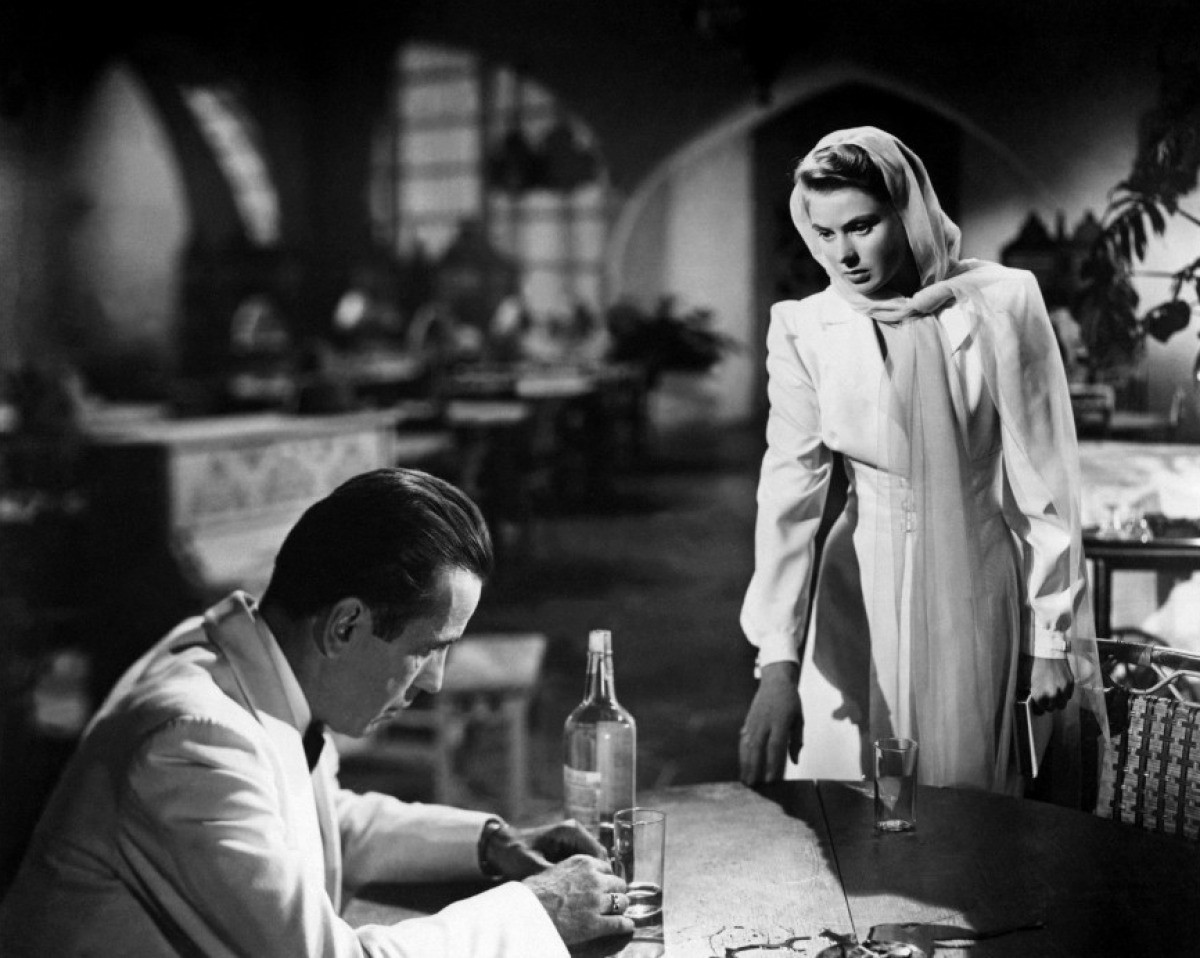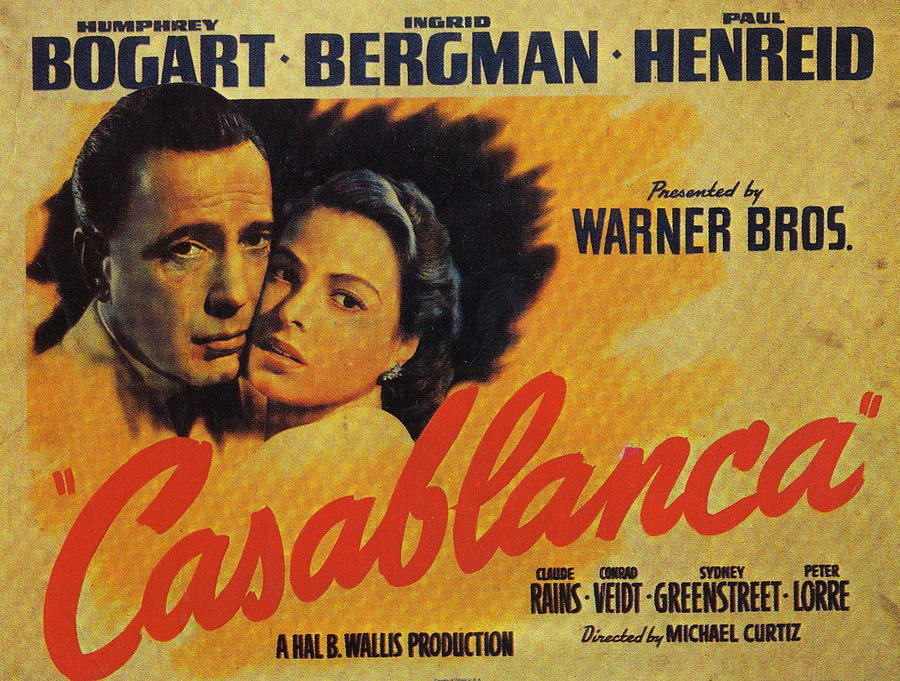Blog
Casablanca Movie Review
The one who made a man extremely upset strolls into his bar — “of all the gin joints in all the world”— with her significant other. In any case, “the issues of three little individuals” are compounded by wartime interest in a hazardous, baffling district. You should recall this: you can’t believe any individual who doesn’t cherish Casablanca. Quit worrying about whether screen composing experts use it as a model for construction and account, or that it got Academy Awards for Best Picture, Director and Screenplay. Interestingly, everything in the film’s enchanted, sensational mix of enthusiastic wartime feelings, frantic outcasts and star-crossed darlings works delightfully, without fail.
Casablanca is in all likelihood — to the wonder of those associated with its to some degree tumultuous creation — the most pleasant wannasee-over and over picture made. As Philadelphia Inquirer pundit Carrie Rickey once expressed, “However not the most ideal film ever, it’s the dearest companion among American movies.” Every time you see it, some pearl of discourse from the fortune store of common witticisms and amusing trades strikes you over again. (Rick: “I came to Casablanca for the waters.” Renault: “What waters? We’re in the desert.” Rick: “I was misguided.”)

Casablanca started as a play, Everybody Comes To Rick’s, by Murray Burnett and Joan Alison. Burnett got the thought from an European excursion in 1938, when he became mindful of exiles in departure from Nazism and noticed the beautiful group in a nightspot in the South of France — the motivation for Rick Blaine’s French-Moroccan ‘gin joint’ (an articulation Bogie himself fill in for ‘bistro’).
In the first of many bits of destiny, the play came into a Warner Bros studio pursuer’s hands on December 8,1941, the day after Pearl Harbor. As the US proclaimed itself at war. studios hustled to get energetic pictures into creation. After fourteen days, Warners’ leader accountable for creation, Hal Wallis, chose to make the film, changed the title to bring out the intriguing sentimentalism of the studio’s hit Algiers, and declared it as settled before contracts were marked (Burnett and Alison supposedly getting a record $20,000 for the freedoms to an unproduced play).
As opposed to fantasy and some inquisitive exposure ploys, Humphrey Bogart was dependably to Wallis for Rick, and kin screenwriters Julius J. also Philip G. Epstein were advised to fit it to him. At the point when the Epsteins went to chip away at Frank Capra’s Why We Fight narrative series, they were just half finished with Casablanca, to which they would return. Howard Koch (who had prearranged the most popular radio station ever, the frenzy instigating variation of The War Of The Worlds for Orson Welles) was. Tripack
Ilsa was another issue. Initially she was an American gold-digger who destroyed Rick’s marriage yet unloaded him for the more extravagant Victor, to whom she was courtesan, not spouse. The blue pencils would have flipped out, and the producers needed her thoughtful, thus the idea of a defenseless, seized European compelled by a sense of honor to her better half. Algiers magnificence Hedy Lamarr was inaccessible, so Wallis haggled with David O. Selznick to get Ingrid Bergman (in return for Warners entertainer Olivia de Havilland). With the content still fragmented, Bergman worried that she didn’t realize what man she would wind up with. However, it is one of those uncommon supernatural mishaps that Bogie and Bergman, in spite of the fact that he was aloof to her behind the scenes, are grand together on screen.
Paul Henreid, then, at that point, featuring with Bette Davis in Now, Voyager, was not exactly excited with regards to what he considered to be the absurdity of playing a Czech Resistance pioneer who might get away from an inhumane imprisonment to turn up in Morocco, carefully dressed for modern fighting with Nazi authorities. Be that as it may, he gritted his teeth and did it as a trade-off for noticeable charging and Warners’ assistance with his visa status. Conrad Veidt, a blunt rival of Nazism who had barely gotten away from Germany, a long way from disdaining pigeonholing as Major Heinrich Strasser really had it in his agreement that he only play scalawags, so unyielding was he that playing smooth Nazi beasts would help the conflict exertion.
Emigre chief Michael Curtiz, not so much of a craftsman as an especially talented skilled worker who forced himself in numerous classifications, had a stickler — some said domineering — character on sets. He additionally had a fascination with Americana and its passionate feelings that brought together the entirety of Casablanca’s components and inventive gifts into its quick moving, climatic, completely enthralling entirety. Warners’ gloat that individuals of 34 identities teamed up on the film might have been a misrepresentation, yet it positively accepted a large number of. There could be no more excellent model than Casablanca of the Hollywood mixture. The film made a world in scale, in which essential widespread cravings, sins and motivations, for terrible and great, are encompassed in fabulousness, tension and style.
Casablanca is all around dearest since it presents the most commendable, rousing legend of Americana in its heartfelt vision: Rick’s redemptive acquiescence of Ilsa for everyone’s benefit, and his flight to join the battle for right. Whenever you first see it is only the start of a lovely companionship.
Interested with this film, you can see more related product Casablanca Movie here!

